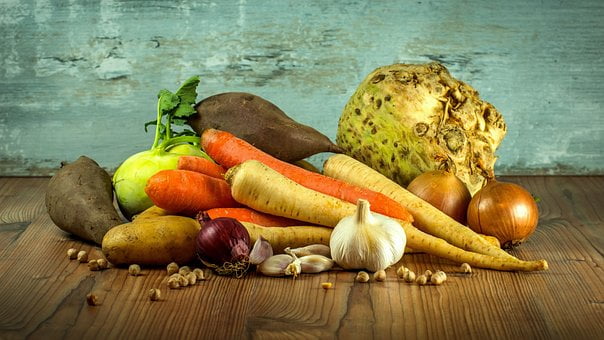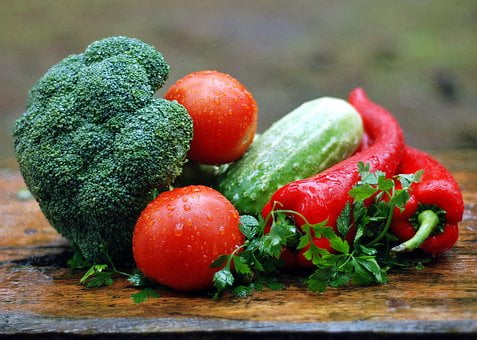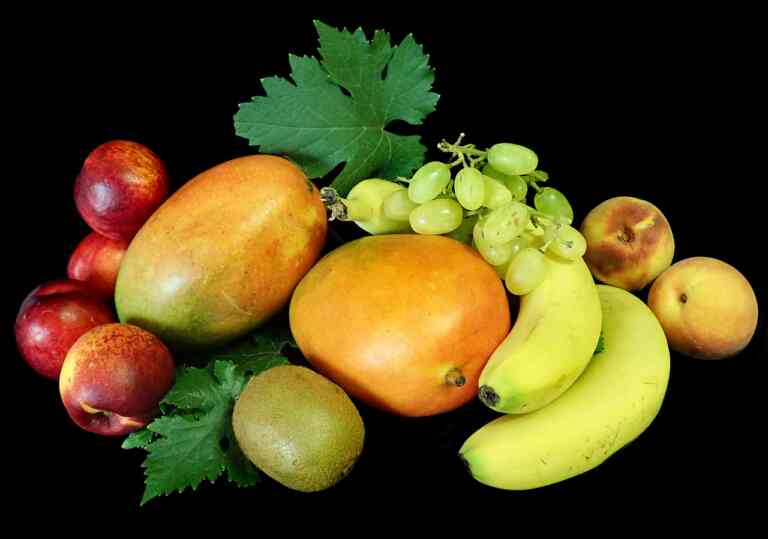Can We Eat Raw Food?
Can we eat raw food? Raw food diets have gained popularity in recent years, with some people choosing to consume uncooked and unprocessed food. The idea behind this approach is that raw food contains more nutrients and enzymes than cooked food, and that heating food can destroy these valuable components. However, the question remains: can we eat raw food?
The answer is not straightforward. Some raw foods, such as fruits and vegetables, are safe to eat raw and are a great source of vitamins, minerals, and fiber. In fact, some nutrients, such as vitamin C and folate, are actually more readily available in raw food than in cooked food. However, other raw foods, such as meat, eggs, and certain types of seafood, can contain harmful bacteria and parasites that can cause food poisoning.
What You Need to Know Before Eating Raw Food
To reduce the risk of foodborne illness, it’s important to be cautious when eating raw animal products. It’s generally recommended that meat, eggs, and seafood be cooked to a specific temperature to kill any bacteria and parasites that may be present. Additionally, it’s important to handle raw animal products carefully to avoid cross-contamination with other foods.
It’s also worth noting that some raw foods can be difficult to digest. For example, raw beans and grains contain anti-nutrients that can interfere with the body’s ability to absorb certain vitamins and minerals. Soaking or sprouting these foods can help to break down these anti-nutrients and make them more digestible.
Understanding the Benefits and Risks of Eating Raw Food
Raw food diets have become increasingly popular in recent years, with some people touting the numerous health benefits of consuming uncooked and unprocessed foods. While there are certainly benefits to eating raw food, there are also some potential risks to be aware of.
Benefits of Eating Raw Food
- Increased Nutrient Intake
Raw foods are packed with vitamins, minerals, and other nutrients that are important for overall health. By consuming raw fruits, vegetables, nuts, and seeds, you can increase your intake of these vital nutrients.
- Improved Digestion
Raw foods are naturally high in fiber, which can help to promote healthy digestion. Eating raw foods can also help to regulate bowel movements and reduce the risk of constipation.
- Weight Loss
Raw food diets are often low in calories, which can help to promote weight loss. Additionally, consuming raw foods can help to reduce cravings and increase feelings of fullness, making it easier to stick to a healthy eating plan.
- Increased Energy
Many people report feeling more energized and alert when they consume a diet rich in raw foods. This is thought to be due in part to the increased nutrient intake and improved digestion associated with a raw food diet.
Risks of Eating Raw Food
- Foodborne Illness
One of the biggest risks associated with raw food diets is the potential for foodborne illness. Raw animal products, such as meat, poultry, seafood, and eggs. It can contain harmful bacteria and parasites that can cause food poisoning.
- Nutrient Deficiencies
While raw foods are packed with nutrients, they may not provide all the nutrients your body needs in the long term. For example, a raw food diet may be deficient in vitamin B12, which is primarily found in animal products.
- Digestive Issues
Consuming large amounts of raw foods can be difficult for some people to digest. Raw foods are harder on the digestive system than cooked foods. It can lead to bloating, gas, and other gastrointestinal issues.
- Difficulty in Meeting Caloric Needs
Raw food diets are often low in calories, which can make it difficult to meet your body’s caloric needs. This can be particularly challenging for athletes or people who engage in high levels of physical activity.

What Are the Health Benefits of Eating Raw Foods?
Eating raw foods has become increasingly popular in recent years, as more and more people are looking for ways to improve their health and wellbeing. Raw foods, which are foods that have not been cooked, processed or refined, are loaded with nutrients and offer numerous health benefits. Here are some of the health benefits of eating raw foods:
- Increased Nutrient Intake
Raw foods are loaded with nutrients, such as vitamins, minerals, and antioxidants, which are essential for good health. By consuming raw fruits, vegetables, nuts, and seeds, you can increase your intake of these vital nutrients.
- Improved Digestion
Raw foods are high in fiber, which helps to promote healthy digestion. Eating raw foods can also help to regulate bowel movements and reduce the risk of constipation.
- Weight Loss
Raw food diets are often low in calories, which can help to promote weight loss. Additionally, consuming raw foods can help to reduce cravings and increase feelings of fullness, making it easier to stick to a healthy eating plan.
Is Eating Raw Food Right for You?
Deciding whether or not to eat raw food can be a personal choice based on your lifestyle, health goals, and dietary preferences. While there are certainly benefits to consuming raw foods, there are also potential risks to be aware of. Here are some factors to consider when deciding if eating raw food is right for you:
- Your Health Goals
If you’re looking to improve your overall health and wellbeing, consuming raw fruits, vegetables, nuts, and seeds. It can be an excellent way to increase your nutrient intake and promote healthy digestion. However, if you have specific health concerns or dietary restrictions, such as anemia, low protein intake, or a history of foodborne illness. A raw food diet may not be the best option for you.
- Your Lifestyle
If you lead a busy lifestyle or don’t have a lot of time to prepare meals, a raw food diet may not be practical for you. Consuming a diet based on raw foods requires more preparation time than a standard Western diet. And you may need to invest in specialized kitchen equipment, such as a high-powered blender or food processor.
- Your Nutritional Needs
While raw foods are packed with nutrients, they may not provide all the nutrients your body needs in the long term. For example, a raw food diet may be deficient in vitamin B12, which is primarily found in animal products. If you’re considering a raw food diet, it’s important to make sure that you are getting all the nutrients your body needs. And to take precautions when consuming raw animal products to reduce the risk of foodborne illness.
Conclusion
In conclusion, eating raw food can provide numerous health benefits, including increased nutrient intake, improved digestion, weight loss, reduced risk of chronic diseases, improved skin health, and increased energy. However, there are also potential risks to be aware of, including foodborne illness and the potential for nutrient deficiencies.
Whether or not to eat raw food is a personal choice based on individual health goals, lifestyle, and dietary preferences. It’s important to make sure that you are getting all the nutrients your body needs and to take precautions when consuming raw animal products. Consulting with a healthcare professional or registered dietitian can help ensure that you are meeting your nutritional needs and making informed decisions about your diet.
Related Posts
This article is reviewed by Russel, before publishing. If you have any doubt, you can contact us or consult with your nearby doctor. Remember, in medical matters, there is no same advice, cure, and medicine for all.







